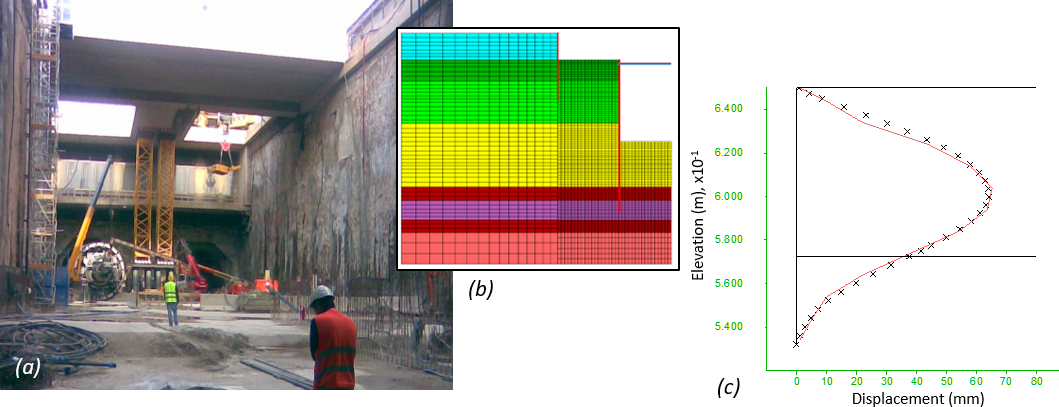Observational Method for Deep Excavation
Project Description
The Observational Method (OM) is a standard practice to support/guide design of infrastructure in sensitive environments, in particular for large excavations in urban areas. The example presented here is one of several cases from the construction of a recent subway line in Rome.
The installed instrumentation allowed for a detailed understanding of the structural response, soil-structure interaction, and displacements of the surrounding area. Special focus was paid to the diaphragm wall displacements, because long-term performance requirements impose strict control on the concrete cracking.
In some cases the observed behavior was outside of the acceptable threshold level, necessitating back-analyses.
Itasca's Role
Our role was to perform numerical back-analyses when the observed behavior was not conforming the design expectation, using FLAC and a proprietary code specifically developed for this purpose. The objectives were to: a) evaluate the stress state and crack situation of the concrete structure; b) assess risks to the adjacent buildings/structures; and c) evaluate possible corrective measures to ensure excavation safely.
The adopted back-analysis procedure starts with the same design assumptions and parameters and then, through a sensitivity process, those parameters are calibrated until the numerical model fits the observed data. Also, during the process, the non-linear behavior of the structure is taken into account and the stiffness of the support is adjusted accordingly.
*This work performed by Augusto Lucarelli, Principal Engineer, prior to employment with Itasca Consulting Group, Inc.
Project Results
The numerical models have allowed, in all investigated cases, a very good understanding of the local and global behavior of the system and have avoided costly and time-consuming corrective measures.
Project Image(s)


